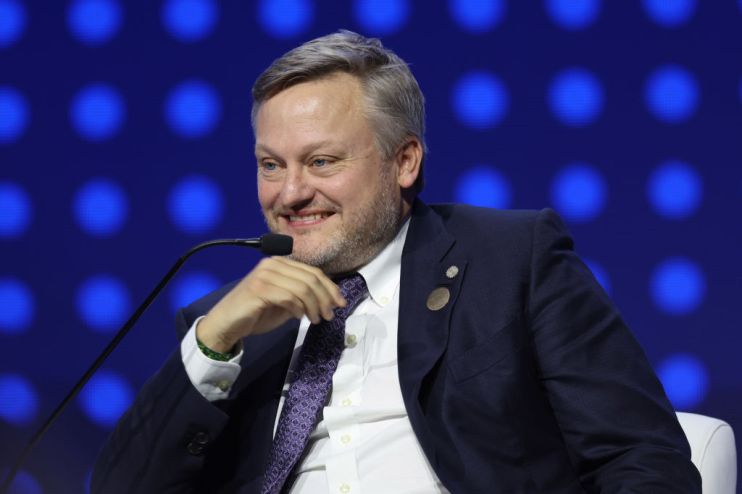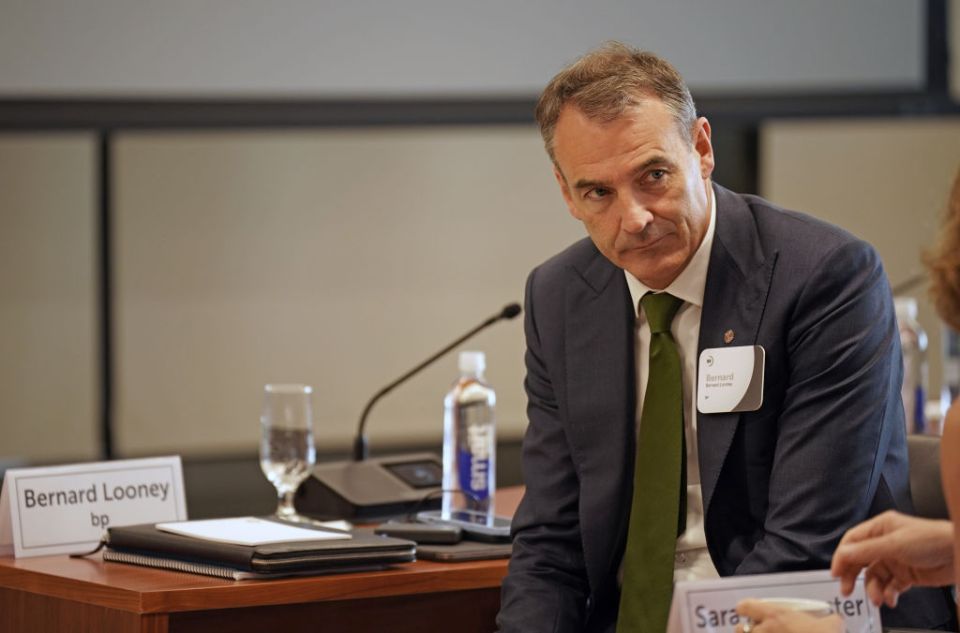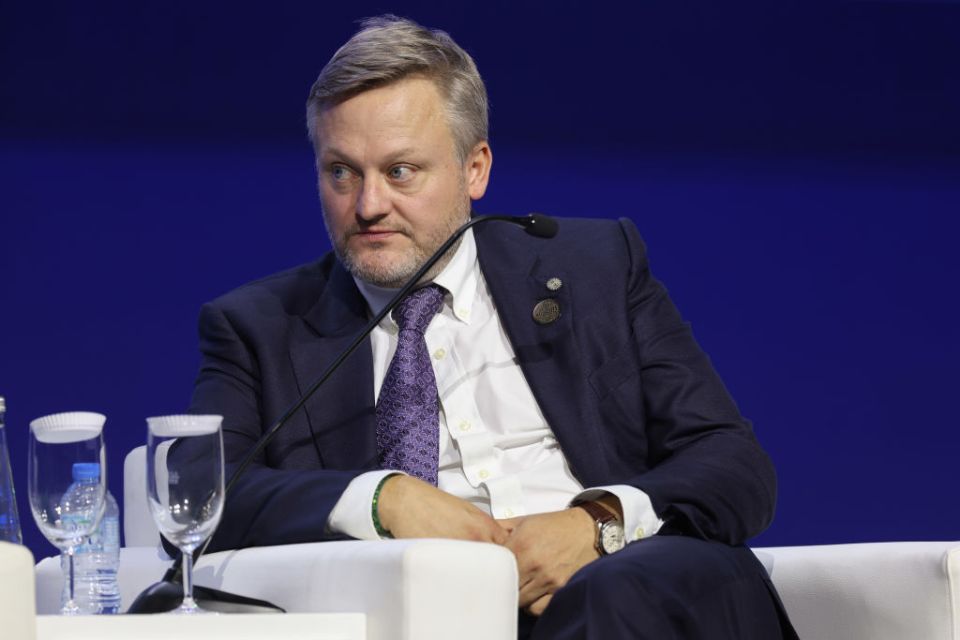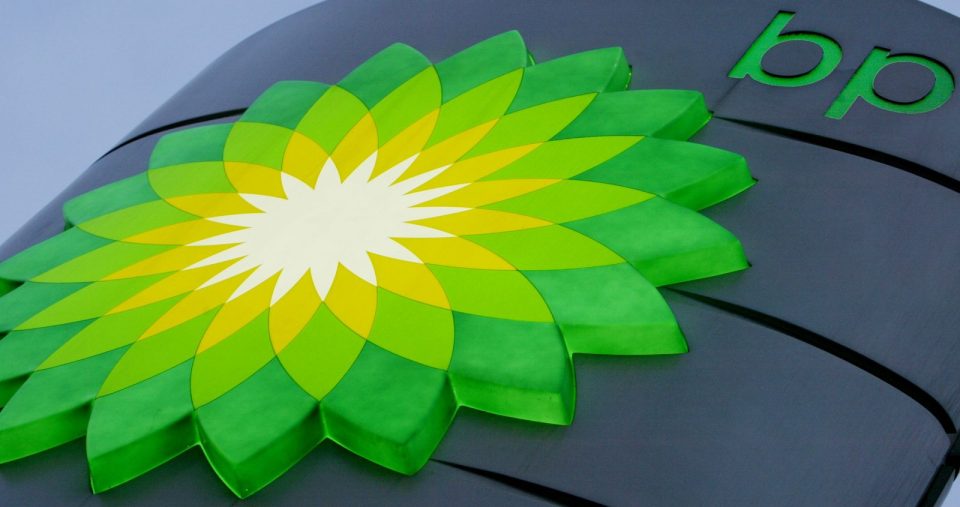‘More cash than we know what to do with’: The big questions for BP’s new chief Murray Auchincloss

At the market’s opening this morning, oil supermajor BP minted its new chief executive.
Murray Auchincloss takes the helm at a time when the company is unquestionably trailing its competitors, most notably in respect of share price health, but also a definitive long-term plan.
That didn’t stop Auchincloss declaring in 2022 that the firm was sitting on more cash than it knew what do with after wholesale energy prices spiked.
Helge Lund, chairman of the BP board of directors, said that the appointment was made unanimously following a “thorough and highly competitive process” which began last September and led to the consideration of several ‘high profile’ candidates.
So who is the man taking the helm of one of the worlds largest oil firms and what can he expect in his in-tray?
MURRAY THE MAN
Auchincloss was the chief financial officer of BP from mid-2020 until former chief executive Bernard Looney’s departure in September last year.
He is also a a director of Aker BP ASA, a main committee member of The 100 Group, and a member of the European Round Table for CFOs.
In its 113-year history, BP has never appointed an outsider to the top job and Auchincloss keeps that trend alive.
Like Looney, he also is in a relationship with a BP colleague, the key difference being that the company says that Auchincloss’ relationship does not represent a breach of BP’s code of conduct and had been “fully and appropriately disclosed” to the group.

Auchincloss’ pay includes an annual salary of £1.45m; provisions relating to bonus opportunity, bonus deferral, and performance shares under BP’s 2023 remuneration policy as approved by shareholders; and a cash allowance in lieu of pension equal to 20 per cent of base salary.
High salaries are the norm if you head up one of the largest London-listed companies and energy companies.
When disgraced former boss Bernard Looney took over in 2020, his initial salary was listed at £1.3m a year before bonuses.
Including bonuses the year after, he made £4.5m and then £10m in 2022 when Russia’s invasion of Ukraine drove oil majors’ profits through the roof.
An external candidate would have brought further uncertainty on the direction of the business and potentially more noise around another strategy shift.
RBC Associate Director of European Research Biraj Borkhataria
Then serving as the firm’s finance boss, Auchincloss told analysts in February 2022: “It is possible that we are getting more cash than we know what to do with.”
For BP, Looney and the final three years of his stewardship, though successful, will likely serve as a cautionary tale.
Though successful enough in returning value to shareholders, Looney’s exit and its subsequent fallout have quagmired the company in strategic purgatory and takeover, takeover target as both internal and external candidates were vetted for the top job.
STRATEGY
Looney’s BP tenure did not lack defining moments, not least Russia’s invasion and his exit, but also including a general shift of operational identity.
To the uncertainty of investors, Looney was pushing a pivot away from the Shell model of high-return, high fossil fuel plays. Auchincloss’ appointment seems to signal a continuation of this plan.

Investment in green energy has not just increased but sky-rocketed — in 2022, the company invested $4.9bn, around 30 per cent of its total $16.3bn capital expenditure in transition growth engines (TGEs), compared to around 3 per cent in 2019.
This includes spending of up to $5bn per year by 2025 on projects including offshore wind, solar projects and investment in hydrogen.
Looney was very vocal about not investing in renewables for the sake of it, maintaining that investor upside can and should be prioritised in the ventures.
One month prior to leaving the post, he told analysts: “I can tell you categorically that our returns threshold is sacrosanct – we will not develop projects that don’t meet our returns threshold.”
But fossil fuel firm leaders like Auchincloss are faced with an unenviable juggling act to satisfy staff, shareholders, the public and government on both returns and emission reduction fronts.
AUDIENCE
It is widely accepted that the new chief exec is regarded well by investors and senior stakeholders and it will be fascinating to see if this tone shifts to the sentiment Looney cultivated as the company continues its greener energy journey.
Having served in the interim role since Looney’s departure, appointing anyone other than Auchincloss would seem to be unwise, said Mike Hewson, chief market analyst at CMC Markets UK.

“He was interim CEO, knows the company, knows the business and knows the strategy so why would they choose someone else when the global energy market is in a state of flux?” he told City A.M.
RBC Associate Director of European Research Biraj Borkhataria said in a Wednesday note: “In our view, Auchincloss’ appointment represents the best possible outcome for BP shareholders in the short term, as it represents continuity for the investment case.”
“An external candidate would have brought further uncertainty on the direction of the business and potentially more noise around another strategy shift.”
Where Shell’s policy of focusing on investor return through fossil fuel development returned an 11 per cent share price uplift last year, BP’s shares fell two per cent.
In this respect, Hewson says BP should take notice.
“I think maybe they should look closer at what Shell is doing in respect to fossil fuels,” he said.
“Even though there is an element of having to play to the green gallery, it is clear that the need for fossil fuels is still there.”
Shares dipped 1.6 per cent by lunchtime today following the announcement.